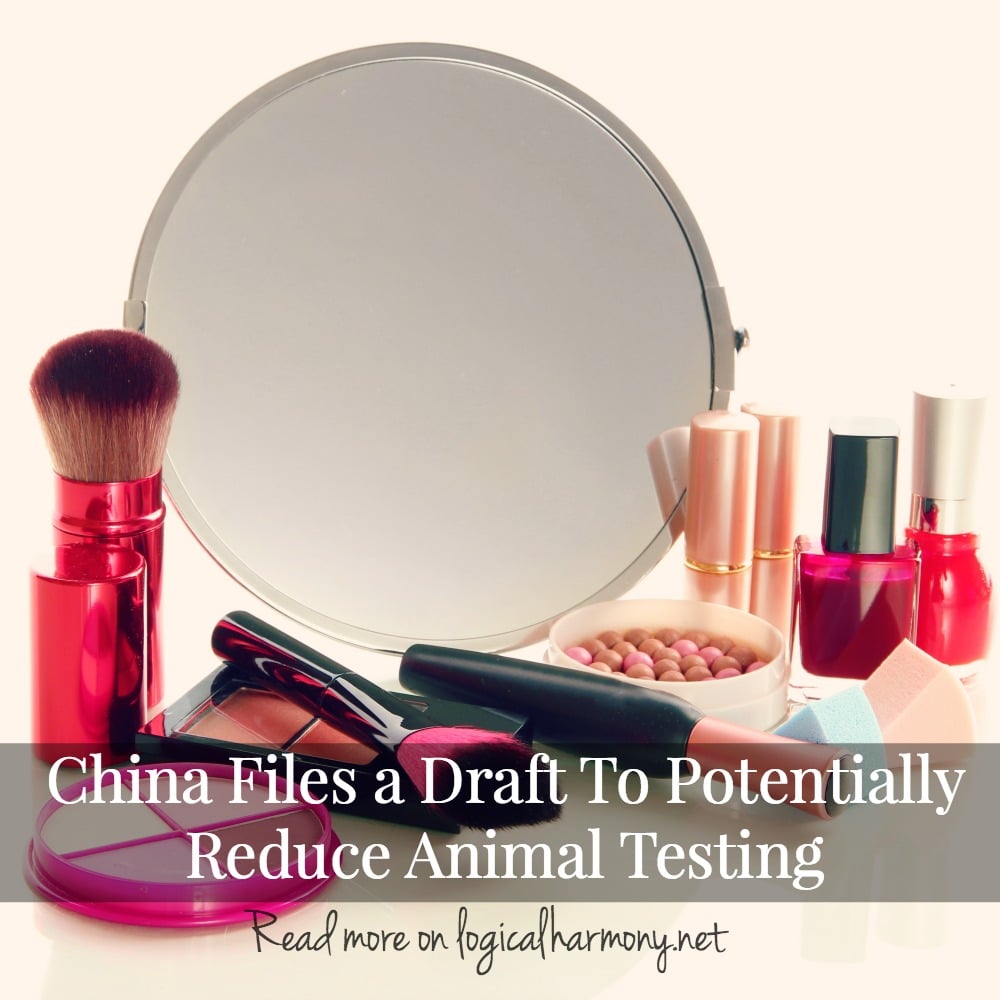China Files a Draft To Potentially Reduce Animal Testing
Today China announced that is has filed a draft that, if further steps are taken, could help reduce animal testing for some cosmetics. Every January, the China FDA made some changes by taking some small steps that could make it easier for international companies to sell in China in the future. In this post, I will share information about what the draft that was filed means to animal testing laws in China.
As you may or may not know, China does currently require animal testing for all products sold in China if the brand also sells internationally. Any small changes to this are a positive step towards ending animal testing!
Continue reading China Files a Draft To Potentially Reduce Animal Testing!
For those who are confused about what the state of animal testing laws in China currently are, the post China Takes First Steps Towards Ending Animal Testing details what products and brands have potentially been impacted by these changes. Please read that post for more in-depth details. To summarize some important key points:
- The changes made in China impact ordinary use cosmetics only. As defined by the Chemical Inspection Regulatory Service (CIRS) in China, ordinary cosmetics include general hair care, nail care, cosmetics, perfumes and skin care.
- Non-ordinary cosmetics will still be required to be tested on animals. According to CIRS, these are products that claim to have a functional use on the label (such as hair growth, hair dye, hair removal, deodorizing, sun block, skin-whitening, skin pigmentation & more). Take a peek at your beauty stash, and you are sure to see statements all over that would make items “non-ordinary”.
- Only ordinary cosmetics that are manufactured and sold only in China will be allowed to use alternatives to animal testing. They are not required to use alternative methods and can continue to test these items on animals if the brand desires.
- Non-ordinary cosmetics that are manufactured and sold only in China are still required to be tested on animals. They are not allowed to use alternative testing methods to prove the safety of these products.
- Both non-ordinary and oridinary cosmetics that are manufactured outside of China and imported into China for sale are still required to be tested on animals.
- If a brand makes both ordinary use and non-ordinary use cosmetics, the brand cannot be cruelty free as they are still making products that require animal testing.
- Post-market (products that are already on the shelves and available for sale) animal testing requirements have been increased. Because of this, many brands who sell in China are still be required to submit their products to regulatory animal testing. This also means that ordinary cosmetics (that are no longer required to be tested on animals) may still be tested on animals by the Chinese government.
According to the Chemical Inspection & Regulation Service (CIRS), the China FDA (CFDA) has now submitted a final draft of a proposal that would, if it goes into effect, help reduce the animal testing requirements for non-ordinary and special use cosmetics. It is also meant to bring the ingredients used closer in line with the ingredients that can be used in the EU.
The goal of this proposal would be to make it easier for local companies to avoid animal testing and to help international companies sell in China with less animal testing involved.
It is unclear at this time as to what extent this proposed draft would impact things should it go into effect. Those details have not yet been released by the CFDA, but Logical Harmony will be keeping an eye on the situation and posting updates as they arrive.
In this situation, any step that would reduce animal testing is a positive one! Hopefully more changes will happen in China to further reduce animal testing.

This together with the news about South Korea phasing out animal testing by 2018 is making 2016 look very good for bunnies, and we’re only in January. Hope this continues!
Small steps definitely add up! Also, this post about South Korea may be a helpful read. Only a couple of forms of animal testing will be phased out there.